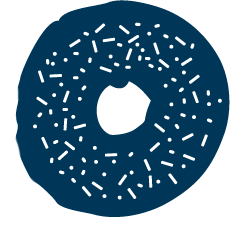When it comes to nutrition labels, shoppers generally fall into one of two camps: Those who read them, and those who would rather not know. Recently, a third category came to light: Those who, despite reading labels, still might not know what they’re really eating.
Current regulations from the Food and Drug Administration allow for less than completely accurate labeling when it comes to trans fats, the dangerous diet-busters that have been linked to elevated cholesterol and an increased risk of coronary artery disease, sudden cardiac death and possibly diabetes.
This understanding led medical student Eric Brandt to ask, how many trans fats are flying under the radar and stealthily ruining our diets?
Food companies are allowed to round down when reporting trace amounts of trans fat, touting foods containing less than 0.5 grams as trans-fat free.
Brandt discovered that consumers can easily exceed the daily recommended value of 1.11 grams, despite their best efforts. Just three servings of deceptively labeled foods with 0.49 grams each of trans fat put a consumer over the recommended limit—though the labels would lead them to believe they were making healthful choices.
Brandt has called on the FDA to enact a more precise reporting and labeling system that would help shoppers get the accurate information they need to make informed decisions.


























